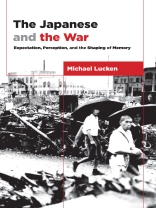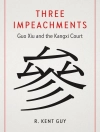Memories of World War II exert a powerful influence over Japan’s culture and society. In The Japanese and the War, Michael Lucken details how World War II manifested in the literature, art, film, funerary practices, and education reform of the time. Concentrating on the years immediately before and after (1937 to 1952), Lucken explores the creation of an idea of Japanese identity that still resonates in everything from soap operas to the response to the Fukushima nuclear disaster.
Lucken defines three distinct layers of Japan’s memory of World War II: the population’s expectations at the beginning, the trauma caused by conflict and defeat, and the politics of memory that arose after Japan lost to the Allied powers. Emphasizing Japanese-language sources, Lucken writes a narrative of the making of Japanese cultural memory that moves away from Western historical modes and perspectives. His approach also paints a new portrait of the U.S. occupation, while still maintaining a cultural focus. Lucken sets out to capture the many ways people engage with war, but particularly the full range of Japan’s experiences, which, he argues, the Japanese state has yet to fully confront, leading to a range of tensions at home and abroad.
表中的内容
Acknowledgments
A Note on Names
Introduction
1. The Nation Out to Conquer
2. A Totalitarian Dynamic, 1940–1945
3. The Meaning of the War
4. Heroes and the Dead
5. Fear and Destruction
6. Postwar Complexities
7. The American Occupation, or the Present Versus the Past
8. The Plurality of History
9. Individual Conscience and Collective Inertia
10. Memory and Religion
11. From Monument to Museum: The Difficult Path to Healing
Conclusion
Notes
Index
关于作者
Michael Lucken is a professor at the National Institute of Oriental Languages and Civilizations in Paris. He is the author of
Imitation and Creativity in Japanese Arts: From Kishida Ryusei to Miyazaki Hayao (Columbia, 2015) and a coeditor of
Japan’s Postwar (2011).












